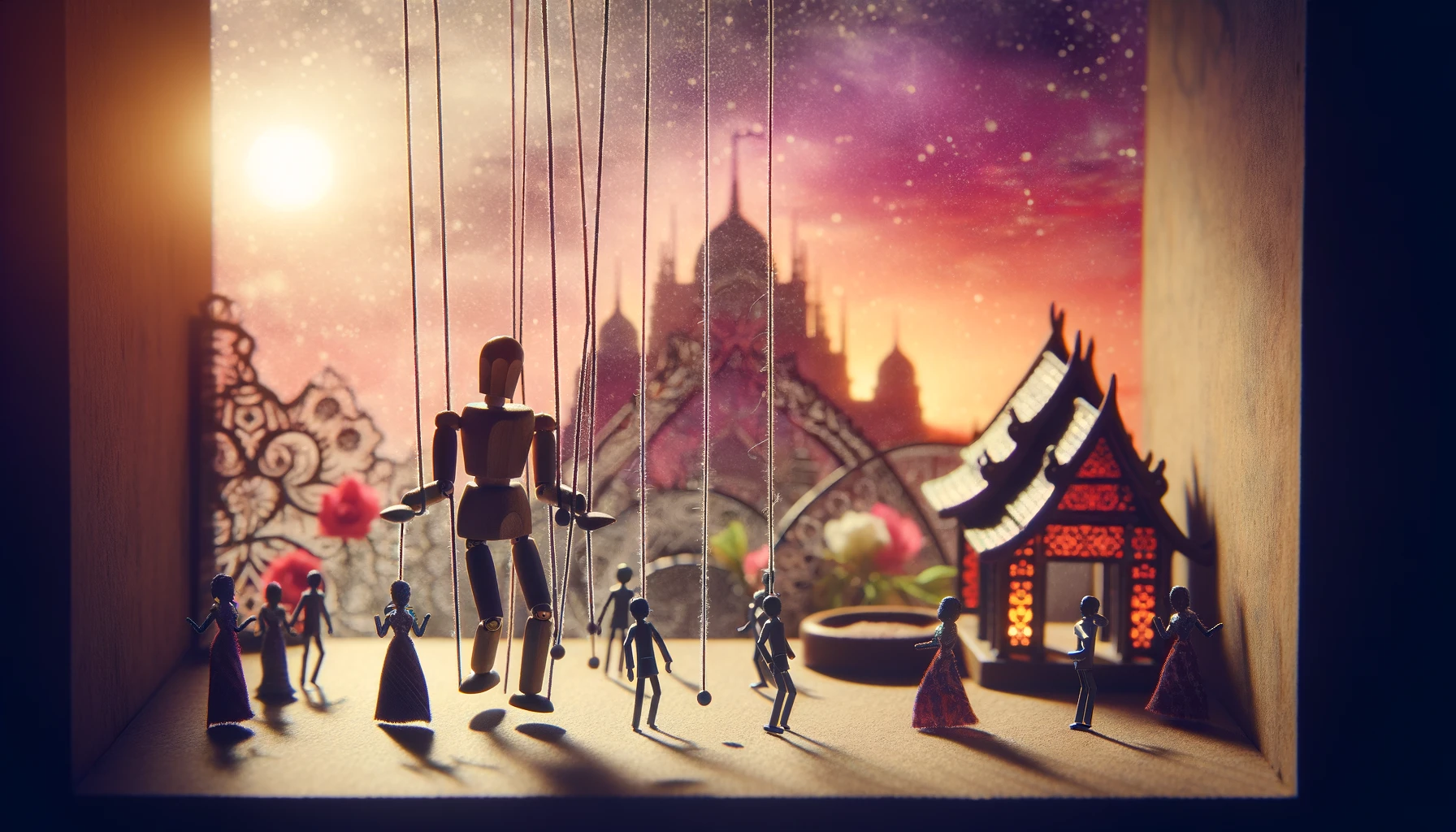Love. That blissful state where everything is sunshine, butterflies, and constant text notifications. But wait, is that your phone buzzing again, or are you just feeling phantom vibrations from the sheer amount of messages you send? Welcome to the ultimate guide on how not to be the human equivalent of a koala in a relationship. Yes, I’m looking at you, Clingy McClingerson.
Clinginess and Neediness: The Relationship Tightrope
Before we dive into the tell-tale signs of being a human limpet, let’s talk about clinginess and neediness. These are the Siamese twins of relationship issues, often showing up uninvited and refusing to leave the party. But why does it matter?
The Oxygen of Relationships: Space and Trust
Relationships, like fine wine, need space to breathe. Clinginess suffocates this space, turning what should be a delightful Merlot into vinegar. Trust is the bedrock of any healthy relationship, and constant clinging signals a lack of trust. It’s like saying, “I love you, but I also think you might run off with the mailman at any given moment.”
The Paradox of Closeness
Here’s the irony: the more you cling, the more you risk pushing your partner away. It’s a classic case of “hold on loosely, but don’t let go.” If you squeeze too tightly, you’re going to lose control (thank you, 38 Special, for this relationship advice).
Neediness: The Emotional Black Hole
Neediness is like an emotional black hole, sucking in all the joy and leaving behind a relationship wasteland. It’s not just about wanting attention; it’s about demanding it. It’s an insatiable hunger for constant validation and reassurance. Spoiler alert: this is not a recipe for a happy, healthy relationship.
Why Self-Awareness is Key
Understanding your clingy and needy tendencies is the first step to overcoming them. It’s about introspection and recognizing that your actions, no matter how well-intentioned, might be suffocating your relationship. It’s time to turn the mirror on yourself and ask, “Am I the clingy one?”
Now that we’ve laid the groundwork on why being the human version of Velcro isn’t ideal, let’s explore the warning signs. Buckle up; it’s time for some self-discovery, sprinkled with humor and hard truths.
The Warning Signs
1. You’ve Forgotten What Your Friends Look Like
Remember those people you used to hang out with before you morphed into your partner’s shadow? They used to be called friends. If your last social interaction was mistaking a stranger for your friend because you haven’t seen your actual friends in ages, it might be a clue.
Advice: Maintain your friendships. They’re like plants; if you don’t water them, they wither away. Plus, they’re your future wedding guests, so keep them close.
2. Your Phone: A Tale of Unrequited Love
Do you send a barrage of texts and feel personally offended when your partner doesn’t reply within 0.3 seconds? If your phone had feelings, it would file for harassment with the amount of attention you demand from it.
Advice: Texting is a two-way street. If you find yourself staring longingly at your phone, waiting for a reply, maybe it’s time to put it down and rediscover hobbies that don’t involve a screen.
3. Personal Space? Never Heard of It
If your idea of personal space is being close enough to tell what your partner had for lunch by their breath, you might have crossed into clingy territory. Personal space is like deodorant – everyone should have it.
Advice: Embrace the ‘me time.’ It’s healthy to have activities that you do separately. It adds mystery and, let’s face it, gives you something to talk about other than what you had for dinner.
4. Social Media: Stalking or Scrolling?
In the digital age, being clingy has gone high-tech. If you find yourself knowing what your partner liked, commented on, or viewed within seconds of them doing it, congratulations, you’re a social media sleuth. But remember, Sherlock, there’s a fine line between being interested and recreating a scene from a detective show.
Advice: Social media is the spice of relationships, not the main course. Use it to share memes, not to monitor movements. Remember, ‘liking’ a post from 2012 is not considered cute, it’s creepy.
5. Surprise! I’m Here… Again
Do you love surprise visits? Does your partner? If your idea of a fun surprise is showing up unannounced every other day, it’s not a romantic gesture; it’s a potential restraining order. Surprise visits should be as frequent as leap years, not like a daily soap opera twist.
Advice: Coordinate with your partner before dropping by. Surprises are great, but so is respecting boundaries. Plus, it gives them time to clean up or, you know, hide the evidence of their secret snack stash.
6. The Emotional Barometer
Do you measure your self-worth by how much time your partner spends with you? If your mood swings more wildly than a pendulum based on their attention, you might be the human version of a mood ring.
Advice: Your happiness shouldn’t solely depend on your partner. Cultivate your self-worth. Try new hobbies, set personal goals, and remember, being happy alone is as important as being happy together.
Conclusion: Clinginess, the Unwanted Relationship Condiment
In conclusion, being clingy is like adding too much salt to a dish – it can ruin a good thing. Love is about sharing your life, not smothering it under a mountain of neediness. So, take a breath, loosen the grip, and remember, the strongest relationships are those where both parties can stand independently, yet choose to walk together. Remember, it’s all about balance, respect, and a healthy dose of self-awareness. Happy unclinging!
Pro Tips: Breaking Free from the Clingy Cocoon
- Cultivate Self-Love
It sounds like a cliché, but it’s true. Loving yourself is the first step towards reducing clinginess. Engage in activities that make you happy and boost your self-esteem. When you’re content with who you are, the need for constant validation from your partner diminishes.
- Communication is Key
Talk to your partner. Express your feelings and fears. Often, clinginess stems from misunderstandings or insecurities that can be resolved through open and honest communication. Remember, it’s a dialogue, not a monologue.
- Set Relationship Goals
Work with your partner to set mutual goals for your relationship. This helps in creating a shared vision and understanding each other’s expectations. Goals can range from how often you’d like to spend time together to personal boundaries.
- Establish a Hobby or Interest Independent of Your Partner
Having a hobby or interest that’s just yours is crucial. It not only gives you something to do in your alone time but also makes you more interesting. Your partner will appreciate the varied conversations and experiences you bring to the relationship.
- Practice Trust
Trust is like a muscle; the more you exercise it, the stronger it gets. Give your partner the benefit of the doubt and resist the urge to control or monitor their every move. Remember, without trust, there’s no real foundation for a lasting relationship.
- Seek Professional Help if Needed
If your clinginess is deeply rooted in past experiences or anxiety, consider seeking help from a therapist. Sometimes, professional guidance is what you need to navigate through your emotions and improve your relationship dynamics.
Frequently Asked Questions About Clinginess in Relationships
While communication is vital, too much of it can feel overwhelming. If you’re constantly checking in, texting non-stop, or expecting immediate responses at all times, it might be too much. Balance is key. Both partners should feel comfortable with the frequency and intensity of communication.
Yes, clinginess can strain a relationship. It can lead to feelings of suffocation, loss of personal space, and resentment. It’s important to recognize and address clingy behavior to maintain a healthy and balanced relationship.
Not necessarily. Caring is about wanting the best for your partner and supporting them, while clinginess often stems from insecurity and a need for constant reassurance. Caring respects boundaries; clinginess tends to cross them.
Open communication is crucial. Express your feelings calmly and clearly, set healthy boundaries, and encourage them to pursue independent interests. If the behavior continues, couples counseling might be beneficial.
Absolutely! Having your own hobbies and interests helps cultivate a sense of individuality and self-sufficiency. It reduces the dependency on your partner for emotional fulfillment and can improve overall relationship satisfaction.
Wanting space is a normal and healthy part of a relationship. It’s essential for personal growth and maintaining your identity outside of the relationship. Communicate your need for space in a loving way, and remember, taking time for yourself benefits both you and your relationship.
It’s normal to seek reassurance occasionally. However, if you find yourself needing constant validation to feel secure in the relationship, it may be a sign of clinginess. It’s important to find self-assurance within yourself and not solely rely on your partner for validation.
Trust is fundamental. When you trust your partner, you feel secure even when you’re not together. Building trust involves honest communication, respecting boundaries, and being reliable. A strong foundation of trust naturally reduces clingy tendencies.



